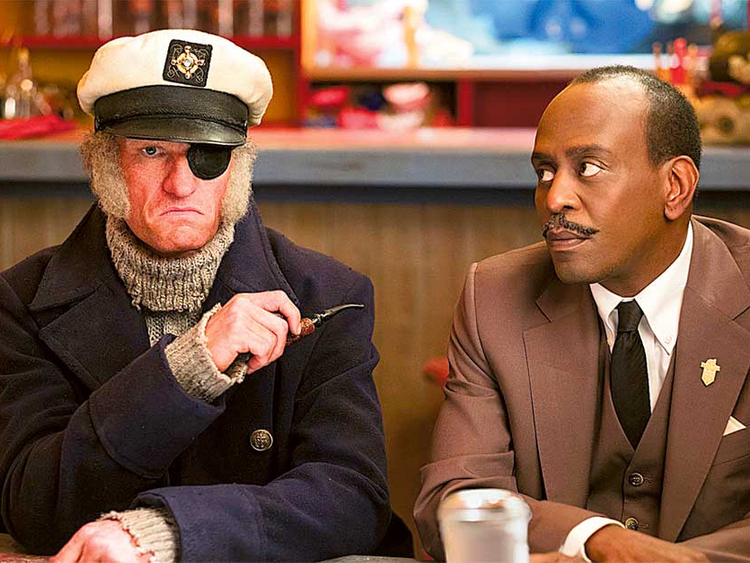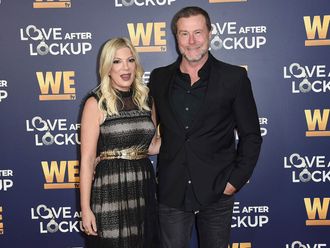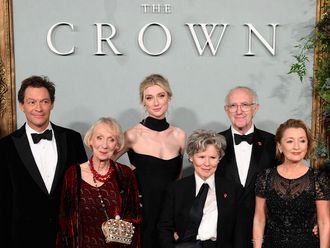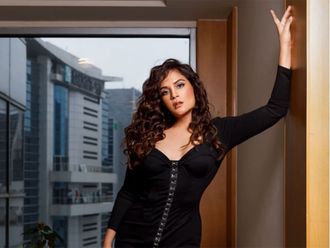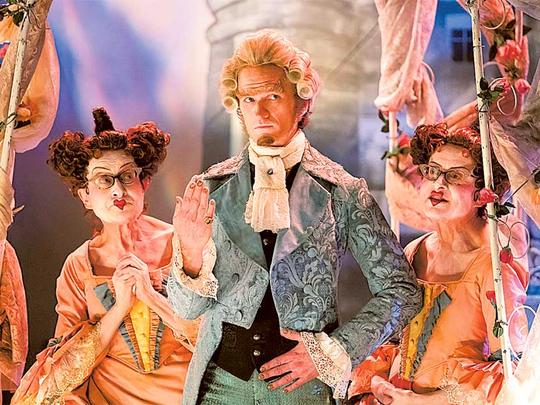
A couple of years after Harry Potter got its hooks into the world, another series of books, ostensibly for children, came calling.
A Series of Unfortunate Events, written by Daniel Handler under the pen name Lemony Snicket, and appearing from 1999 to 2006, tells the story of the Baudelaire orphans, Violet, Klaus and Sunny, and their search for peace and security in the aftermath of their parents’ death, as the wicked Count Olaf, a self-styled “ac-tor,” attempts to steal their fortune.
In 2004, the first three of its 13 books became a feature film, Lemony Snicket’s A Series of Unfortunate Events, starring Jim Carrey as Count Olaf. Some fans of the books — which here means “the writer of this review, among others” — found it disappointing.
Now comes Lemony Snicket’s A Series of Unfortunate Events, the eight-episode Netflix series, with Neil Patrick Harris as Olaf and Patrick Warburton as Snicket, who narrates retrospectively from within the story.
I have no complaints, and only praise. The only question is whether to savour or to binge. (Professionally, I had to binge; but I would advise you to take your time.)
Executive producer Barry Sonnenfeld (The Addams Family, Men in Black, Pushing Daisies) directed half the episodes, with production designer Bo Welch (Edward Scissorhands, Beetlejuice) directing two of the remaining four. Masters of the modern screen fairy tale, of mixing the lifelike with the overtly theatrical, storybook aesthetics with darkened moods, they are the right people for this job, set in a milieu that is hard to fix in time, except to say it is not now.
With the first four books getting two hourlong episodes apiece, there is plenty of room for banter, action and off-the-point humour, and yet it feels more dynamic than the film, for all the film’s compression. (In order, the action centers on Count Olaf’s house and theatre; a herpetologist’s laboratory; a lakeside village; and a sawmill.)
Long-arc mythology I am fairly sure was not on Handler’s mind when he first put pen to paper has been retrofitted into his new adaptation.
Slipping in and out of various disguises, Harris’ Count Olaf is at once more grotesque and more banal than Carrey’s. His self-importance pierced with melancholy, he’s a villain with the heart and habits of an annoyed and impatient teenager, a know-it-all short on information: “All of the artistic and financial aspects of my career are finally coming together like two pieces of a bread in the middle of a sandwich.”
As in most stories for young people, children must ultimately fend for themselves. The Baudelaires possess complementary talents. Violet (Malina Weissman), 14, who fiddles with things, is an inventor; 12-year-old Klaus (Louis Hynes), who loves books, handles research; and infant Sunny (Presley Smith, baby talk by Tara Strong) is the muscle, on the strength of her four-tooth bite.
Grown-ups, when not evil, tend to be fatally distracted, or simply incompetent; Alfre Woodard, Assif Mandvi, Joan Cusack, Don Johnson, Catherine O’Hara and Rhys Davies play some of these walking obstacles. When Mr. Poe (K. Todd Freeman), the banker who minds the Baudelaires’ held-in-trust estate says, “The adults will take care of it from here,” it is a clear sign of trouble ahead.
On the page, Series has explicitly much to do with language and storytelling. The streaming series, which makes many literary references and then comments on its habit of dropping them, also winks at its own form.
“As an actor I think live theatre is a much more powerful medium than, say, streaming television,” says Count Olaf. And also: “In all honesty I prefer long-form television to the movies; it’s so much convenient to consume entertainment from the comforts of your own home.”
As the books were presented as something you might want to avoid, the series is announced as something you might not want to watch, beginning with the title song. “Look away, look away,” Harris sings. “This show will wreck your evening, your home life, and your day.”
“From the beginning of this miserable tale to the last melancholy scene,” says Snicket, “I cannot think of a single line, a single word that does not chill me to my deepest bones.”
This is not just whistling Dixie. Although basically comic, and not without moments of beauty and relief, the series is a dream in which you escape one trap only to fall into another, elude your pursuer only to find him somehow before you, and where hope springs eternal only so it can be eternally snatched away. But you should watch it, anyway, and take your time.



